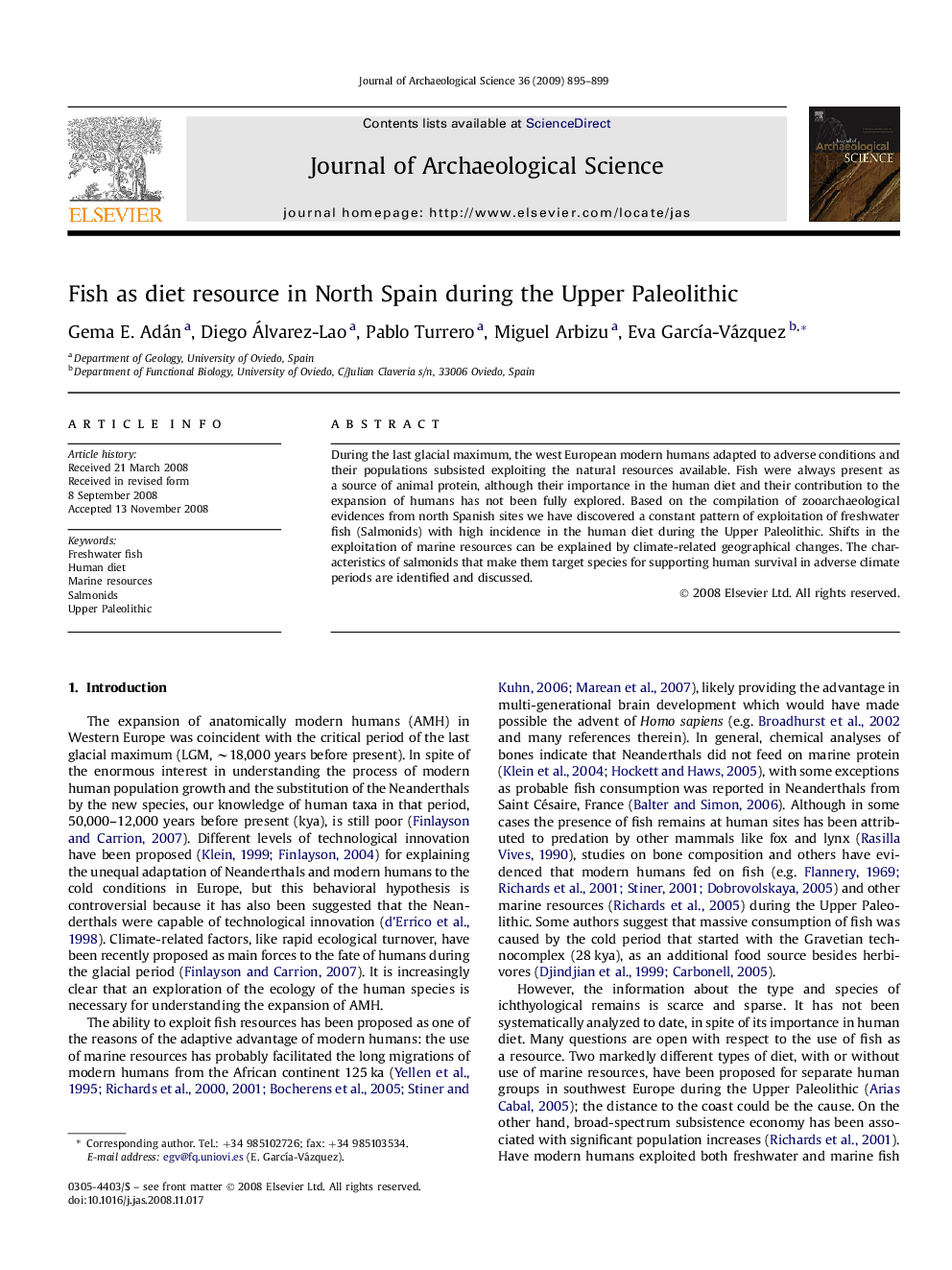| Article ID | Journal | Published Year | Pages | File Type |
|---|---|---|---|---|
| 1036828 | Journal of Archaeological Science | 2009 | 5 Pages |
During the last glacial maximum, the west European modern humans adapted to adverse conditions and their populations subsisted exploiting the natural resources available. Fish were always present as a source of animal protein, although their importance in the human diet and their contribution to the expansion of humans has not been fully explored. Based on the compilation of zooarchaeological evidences from north Spanish sites we have discovered a constant pattern of exploitation of freshwater fish (Salmonids) with high incidence in the human diet during the Upper Paleolithic. Shifts in the exploitation of marine resources can be explained by climate-related geographical changes. The characteristics of salmonids that make them target species for supporting human survival in adverse climate periods are identified and discussed.
